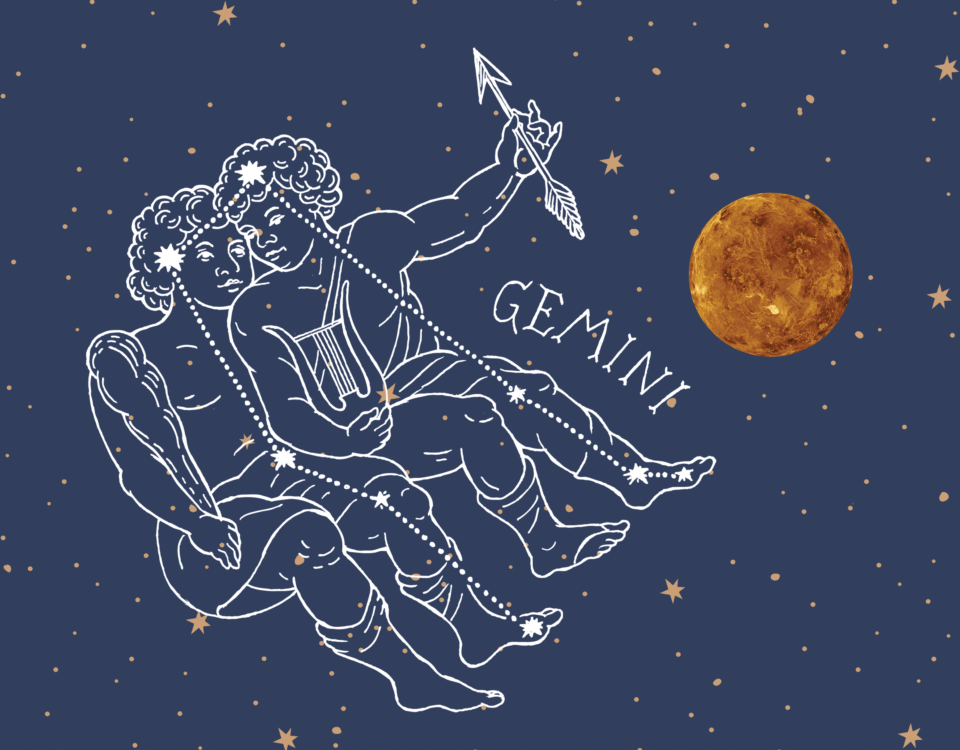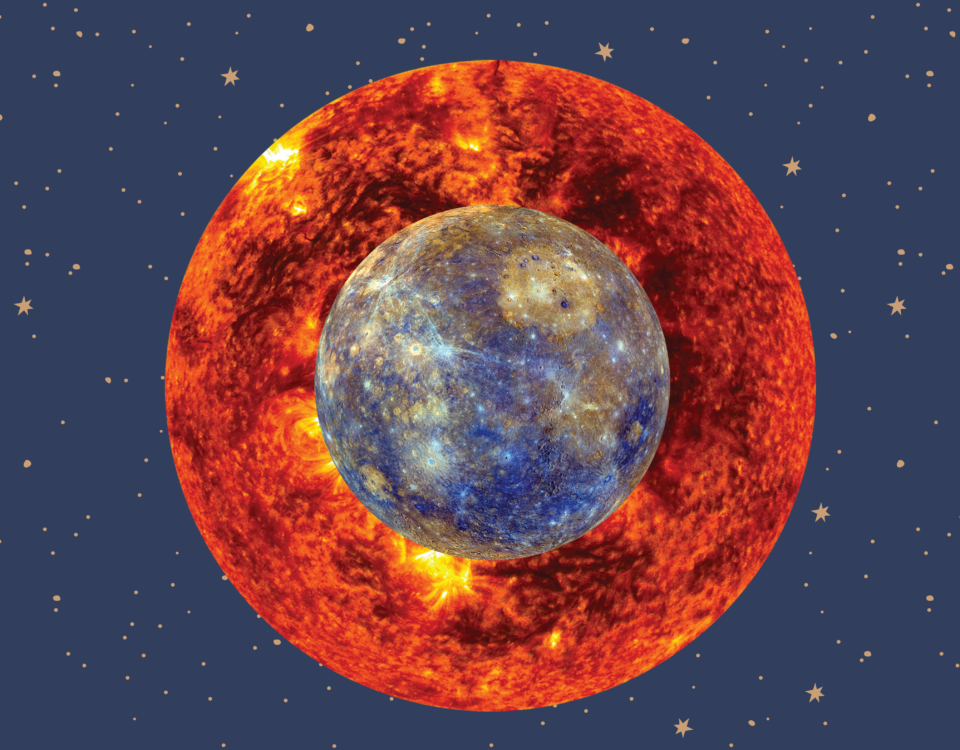Age of Aquarius
- Home
- Blog
- Age of Aquarius
- Age of Aquarius
The Age of Aquarius is an astrological term that refers to a period during which the Earth's precessional alignment is believed to move into the constellation of Aquarius. It is said to be one of twelve astrological ages, each lasting approximately 2,150 years, that together make up the Great Year or the precessional cycle of approximately 25,800 years.
The concept of the Age of Aquarius gained popularity in the 1960s and 1970s, particularly through the 1967 musical "Hair," which included the song "Aquarius." The age is often associated with themes of peace, love, unity, and spiritual enlightenment. However, there is no consensus among astrologers, astronomers, or historians about exactly when the Age of Aquarius actually begins or if it has already begun.
The Age of Pisces, which we are leaving, and the Age of Aquarius, which we are entering, are astrological ages characterized by distinct themes, values, and energies, based on the qualities attributed to the corresponding zodiac signs. Here are some differences between the Age of Pisces and the Age of Aquarius:
Age of Pisces:
- Spirituality: The Age of Pisces is associated with the rise of major world religions, such as Christianity and Islam, and a focus on spirituality, mysticism, and faith.
- Hierarchies: This age is characterized by the establishment and prevalence of hierarchical structures, including religious institutions, monarchies, and social classes.
- Dualism: Pisces is symbolized by two fish swimming in opposite directions, which can represent the dualistic nature of the age, including the dichotomies of good versus evil, and the material versus the spiritual.
- Emotional connection: Pisces is a water sign, often associated with sensitivity, intuition, and emotional connections, which have played a significant role in shaping the values and experiences of the age.
- Martyrdom and self-sacrifice: The Age of Pisces has been marked by themes of martyrdom, self-sacrifice, and suffering for the greater good or for spiritual redemption.
Age of Aquarius:
- Innovation and technology: The Age of Aquarius is associated with technological advancements, scientific discoveries, and innovation, fostering rapid progress and new ways of thinking.
- Individualism and freedom: Aquarius is an air sign and symbolizes individualism, independence, and the pursuit of personal freedom, encouraging the exploration of unique perspectives and ideas.
- Humanitarianism and social justice: Aquarian energy is linked to humanitarian values, social justice, and equality, inspiring collective efforts to create a more equitable and compassionate world.
- Global consciousness: As we move into the Age of Aquarius, there is a greater emphasis on global interconnectedness and the awareness that all of humanity shares a common destiny on this planet.
- Collaboration and networking: The Age of Aquarius encourages collaboration, networking, and the formation of communities based on shared values and goals, as opposed to rigid hierarchical structures.
As we transition from the Age of Pisces to the Age of Aquarius, the differences between these astrological ages reflect a shift in societal values, priorities, and ways of thinking. While the Age of Pisces emphasized spirituality, faith, and hierarchical structures, the Age of Aquarius is characterized by innovation, individualism, humanitarianism, and global interconnectedness. However, it is crucial to remember that these descriptions are based on astrological beliefs and cultural associations, rather than empirical evidence.
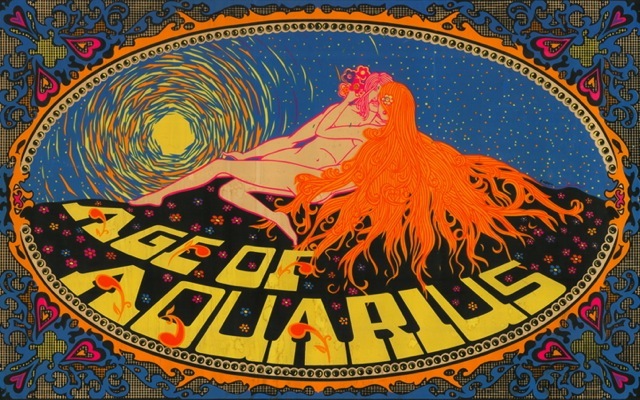
The term "New Age" is often used to describe a broad range of spiritual and philosophical beliefs, practices, and ideas that emerged in the late 20th century. When people refer to the "New Age," they are, in a sense, alluding to the Aquarian energy of the new astrological age that is believed to be emerging.
The Age of Aquarius is thought to embody a shift in consciousness, where humanity moves towards a greater understanding of the interconnectedness of all things, spiritual enlightenment, and a focus on humanitarian and environmental concerns. The New Age movement shares many of these characteristics, as it seeks to blend spirituality with modern thought and foster individual growth, self-awareness, and a sense of unity with the universe.
Some key themes and ideas associated with both the New Age movement and the Aquarian energy include:
-
Spirituality: Both the New Age and the Age of Aquarius emphasize the importance of spiritual growth and exploration. This may involve practices such as meditation, energy healing, or engaging with diverse spiritual traditions to find deeper meaning and purpose in life.
-
Holistic approaches: In the New Age movement, there is a focus on holistic living, encompassing physical, mental, emotional, and spiritual well-being. This approach aligns with the Age of Aquarius' emphasis on interconnectedness and harmony in all aspects of life.
-
Environmentalism: Both the New Age movement and the Age of Aquarius share a deep concern for the environment and the well-being of the planet. This may manifest in efforts to live more sustainably, advocate for climate justice, and promote ecological consciousness.
-
Equality and social justice: The Age of Aquarius is associated with a strong emphasis on social responsibility and equality. Similarly, the New Age movement often champions causes such as human rights, gender equality, and social justice.
-
Global awareness: Both the New Age and the Age of Aquarius encourage a greater understanding of the interconnectedness of humanity and the importance of fostering global unity and cooperation.
-
Personal growth and self-discovery: The New Age movement places a strong emphasis on personal development and self-improvement, which aligns with the Aquarian energy's focus on individual expression and freedom.
In summary, when people refer to the "New Age," they are often implicitly acknowledging the Aquarian energy that is believed to underpin the movement. Both the New Age movement and the Age of Aquarius share similar values and goals, emphasizing spiritual growth, interconnectedness, and a desire for a more harmonious and just world.
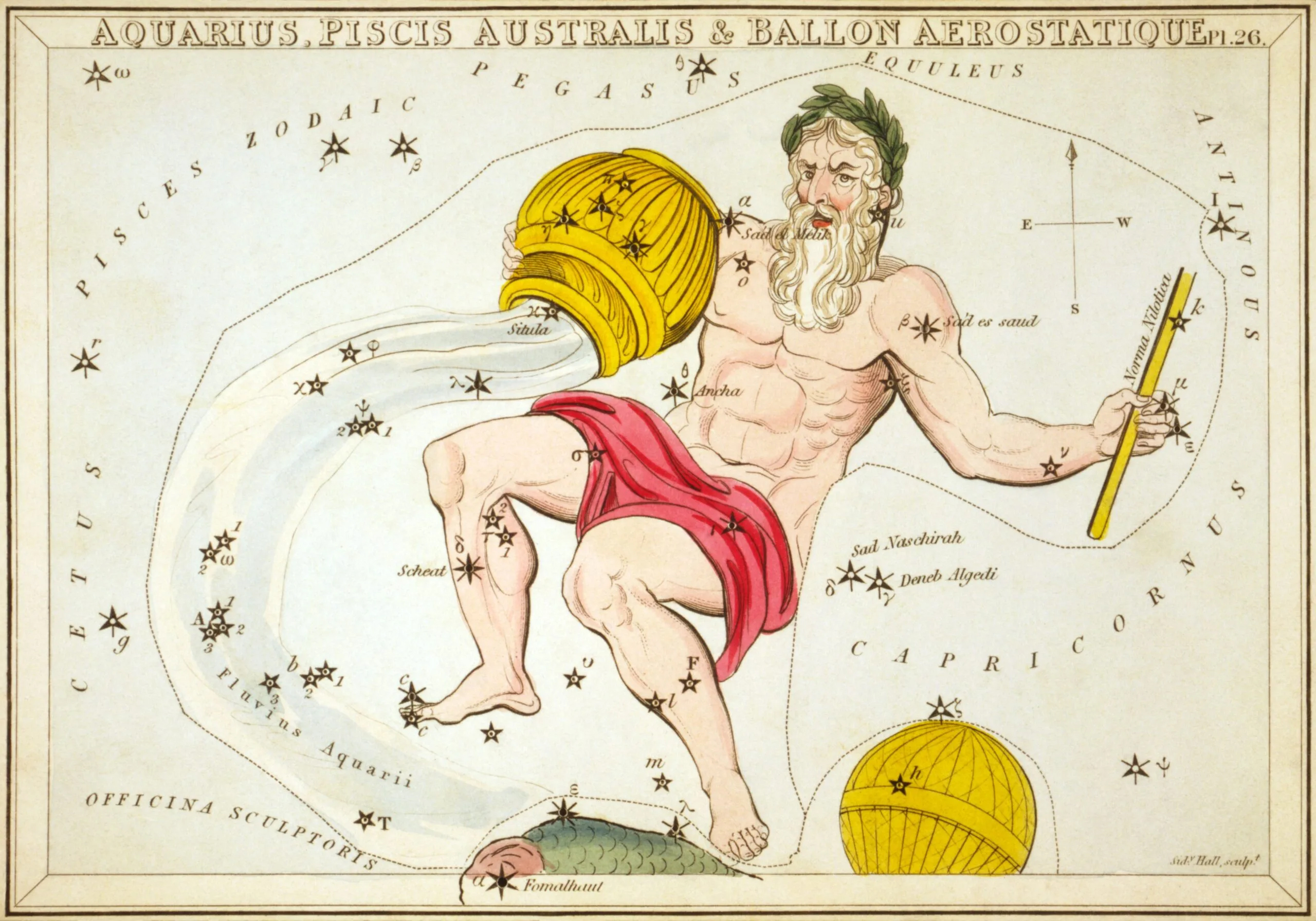
The Age of Aquarius is coming, and there isn't anything anyone can do to stop it. So instead, it's better to prepare! You can take the following steps to help ease your personal transition into a new age:
-
Embrace personal growth: Focus on self-improvement and self-awareness by exploring your strengths and weaknesses, and consider engaging in activities that foster growth, such as reading, taking classes, or attending workshops.
-
Develop your spirituality: Explore different spiritual practices and traditions to deepen your connection with your inner self and the universe. Meditation, yoga, and mindfulness practices can help you achieve a greater sense of inner peace and balance.
-
Foster community connections: Cultivate relationships within your community and engage in collaborative efforts to support one another. Seek opportunities to participate in local events, volunteer for community projects, and contribute to the well-being of others.
-
Advocate for social justice: Educate yourself on social and environmental issues and actively support causes that promote equality, human rights, and environmental sustainability. Use your voice and resources to make a difference in your community and the world.
-
Cultivate an open mind: Embrace new ideas, perspectives, and ways of thinking. Be open to change, and be willing to let go of outdated beliefs and patterns that no longer serve you or the collective good.
-
Practice empathy and compassion: Cultivate a sense of empathy and compassion for others, regardless of their background, beliefs, or experiences. Seek to understand their perspectives and extend kindness in your interactions.
-
Live sustainably: Make conscious choices about your lifestyle and consumption habits to minimize your impact on the environment. Consider adopting eco-friendly practices, such as recycling, conserving energy, and supporting local, sustainable businesses.
-
Embrace creativity and innovation: Explore your creative side and engage in activities that promote innovation and new ways of thinking. This can include art, writing, music, or simply seeking out unconventional solutions to problems.
-
Nurture your relationships: Prioritize building strong, healthy relationships with friends, family, and loved ones. Practice open communication, active listening, and mutual support to create a positive environment in which everyone can grow.
-
Connect with like-minded individuals: Seek out communities and groups that share your values and interests in the Age of Aquarius. Engaging with others who are on a similar journey can provide support, inspiration, and opportunities for collaboration.
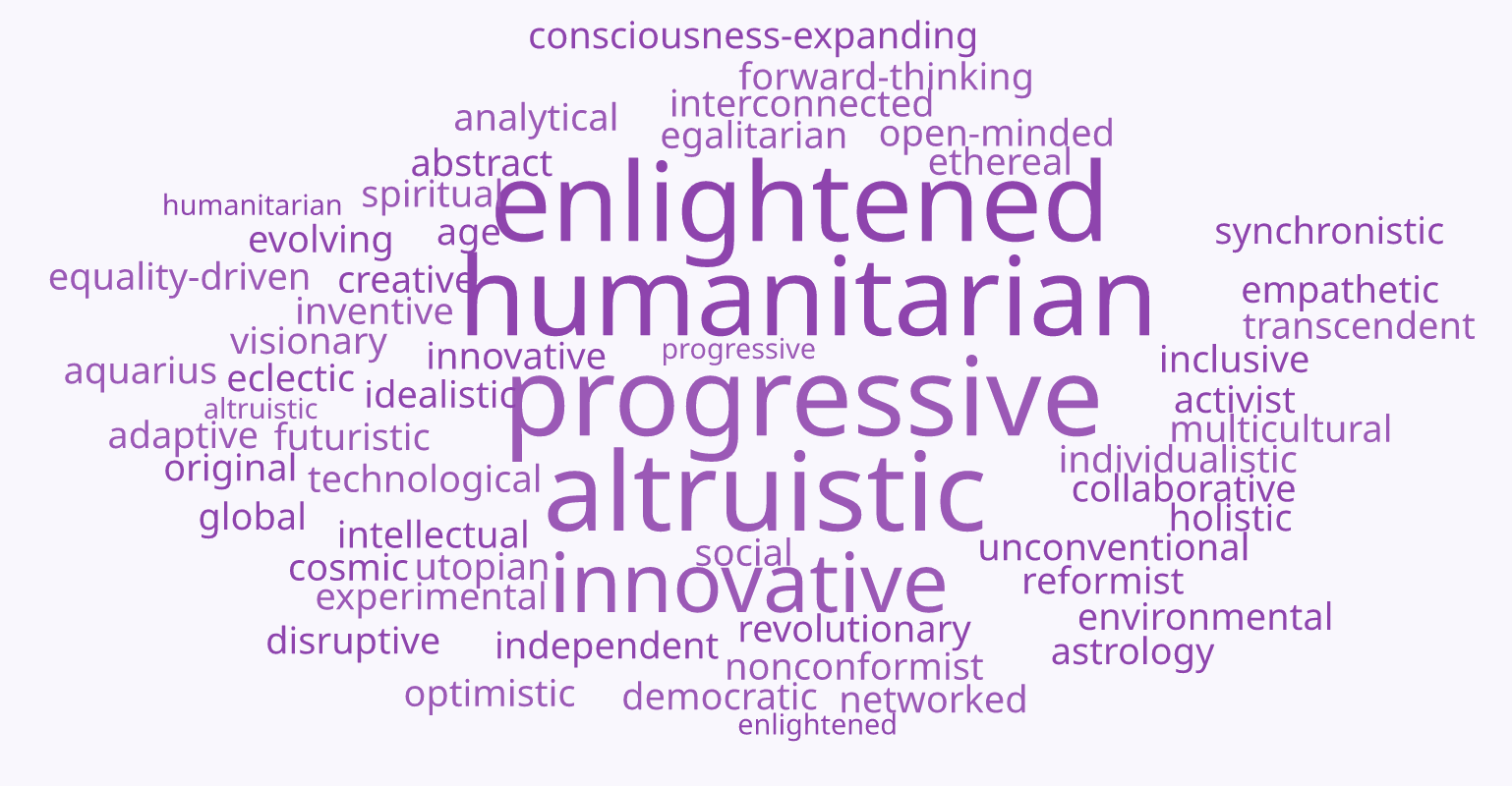
When Does it Start?
Determining the exact start of the Age of Aquarius is indeed a matter of debate among astrologers, astronomers, and historians. It is quite like the shift between two colors in the spectrum. It's impossible to pinpoint the exact moment red turns to violet. There is no universally accepted date, but several theories have been proposed. Here are some of the most common options and the reasoning behind them:
-
Mid-20th century: Some astrologers believe that the Age of Aquarius began in the mid-20th century, with the advent of revolutionary social, cultural, and technological changes that took place during the 1960s and 1970s. The era saw rapid advancements in technology, the civil rights movement, and countercultural shifts in societal values, which are often associated with the Aquarian energy of innovation and humanitarianism.
-
1962: A specific date proposed by some astrologers is February 4, 1962, when a rare alignment of several planets, the Sun, and the Moon occurred in the sign of Aquarius. This event is seen as a symbolic marker of the start of the Age of Aquarius.
-
1999-2000: Another theory suggests that the Age of Aquarius began around the turn of the 21st century, coinciding with the new millennium. Proponents of this idea often point to the global connectivity facilitated by the internet and the acceleration of technological advancements as evidence of the Aquarian influence.
-
2012: Some astrologers and New Age thinkers associate the start of the Age of Aquarius with December 21, 2012, which marked the end of the Mayan Long Count calendar. This date was seen as a turning point in human consciousness and the beginning of a new era of spiritual awakening.
-
Mid-21st century to several hundred years in the future: Other theories place the beginning of the Age of Aquarius further into the future, based on various interpretations of the Earth's precessional cycle and historical events. These estimates can range from the mid-21st century to several hundred years from now.
It is important to note that the concept of astrological ages, including the Age of Aquarius, is based on cultural, historical, and astrological beliefs and interpretations, rather than scientific evidence. As a result, the exact start date remains a matter of debate and personal perspective.
What Causes the Ages to Change?
In astrology, ages are caused by a phenomenon called axial precession or precession of the equinoxes. Axial precession is a slow, continuous change in the orientation of Earth's rotational axis. It results from the combined gravitational forces of the Sun, the Moon, and other planets on Earth's equatorial bulge. This causes Earth's axis to trace out a circular path in the sky, similar to the motion of a spinning top as it begins to wobble.
The precession of the equinoxes occurs over a period of roughly 25,772 years, during which Earth's axis completes one full cycle. As a result of this precessional motion, the position of the celestial poles and the equinoxes gradually shift with respect to the background stars.
Astrological ages are determined by the position of the vernal (spring) equinox relative to the constellations of the zodiac. As the Earth's axis precesses, the vernal equinox moves slowly backward through the zodiac signs, spending approximately 2,160 years in each sign. The time it takes for the vernal equinox to complete one full cycle through all twelve zodiac signs is called a Great Year or a Platonic Year, which lasts around 25,772 years.
The current astrological age is determined by the constellation in which the vernal equinox occurs. For example, during the Age of Pisces, the vernal equinox takes place when the Sun is in the constellation of Pisces. As the precession continues, the vernal equinox will eventually move into the constellation of Aquarius, marking the beginning of the Age of Aquarius.

